With tillage farmers gearing up for the harvest, now is the time for livestock farmers to consider buying grain off the combine to help reduce winter feed costs. Peter Thomas Keaveney reports
What is grain crimping?
The crimping of grain is a process which allows farmers to harvest, process, store, and preserve (ensiled) the full feed value of cereal and protein grains for use as animal feed. This process cuts out the need for drying and storage facilities.
For successful crimping, farmers will need a clean, airtight clamp/silo where the processed grain can be ensiled in a pit-like form. Processing freshly harvested grain through crimping exposes the carbohydrates and protein.
What is dry rolling?
Rolling is the cracking of the grain in several places, to enable the rumen to access all the starch and other nutrients without going as far as milling the grain. Dust should be minimised, as it can be lost and adds a risk during handling. The main difference between crimping and rolling is that rolling happens at 18-20% moisture, while crimping would ideally occur between 28-32% moisture.
Who manufacturers crimping/rolling machines?
A number of Irish manufacturers make crimping machines of varying capacity and sizes. Two of the best known firms include Kildare-based Cross Agricultural Engineering and Louth-based Wakely Engineering.
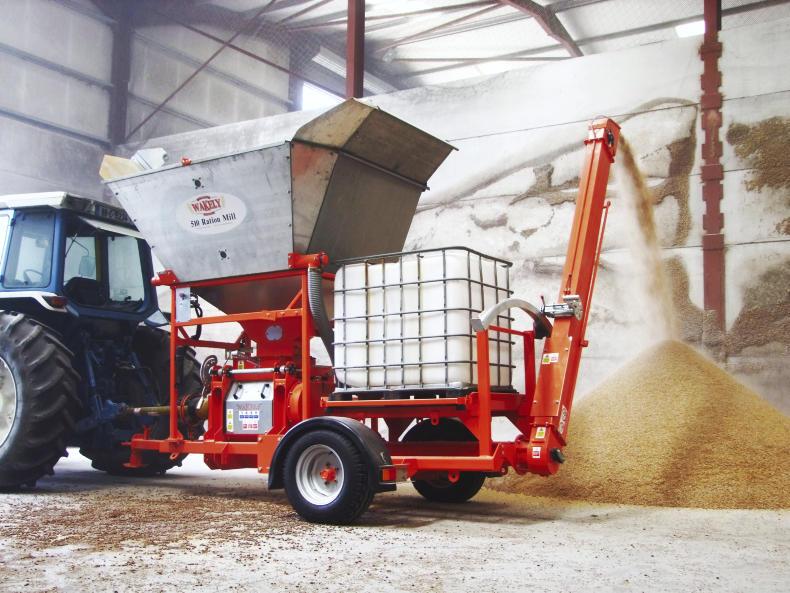
Wakely offer eight models which include static electric to mobile PTO and finally static PTO machines.
Both manufacturers offer machines which can be used for both crimping and for dry rolling. To switch from one process to the other, it’s just a case of adjusting the roller pressure. Depending on the specifications of the machine, this can be carried out either hydraulically or manually.
These machines are generally able to process any combinable crop.
Wakely Engineering
Based near Dundalk in Co Louth, Wakely offers a huge range of such machines. These vary from small electrical powered machines with outputs of 1.5t/hr up to high-volume 50t/hr machines.
The firm offers eight models which include static electric to mobile PTO and finally static PTO machines. According to Wakely, the electric machines would typically be used for dry rolling and flat rolling. They can crimp, but the mobile machine would be more suitable.
The smallest electric machine the firm makes is the 0130. With an output of 1t to 1.5t/hr, it would suit a small farmer with a single phase power supply. This machine would set you back €4,000 plus VAT.
The next step is the 0250, which has an output of 2.5t to 3t/hr. Suiting a bigger farmer with a three phase power supply, it’s priced at €7,000 plus VAT. Those after more output can avail of the 0510 mobile drier. With a 9t/hr rolling output capacity, it can be driven with a 65hp tractor. It’s priced at €18,600.
The Wakely machines are equipped with helical gears that drive both rolls. The firm says these eliminate slippage which can occur at high moisture levels, or when the machine is in full flow. The rolls are powered by belts or chains.
They also feature fluted solid chilled rolls which allow the operator to roll dry or wet grain. Liquid and granular applicators can be supplied with machines as optional extras. The rear platform can be used to store a 1,000l IBC tank for crimping.
Cross Engineering
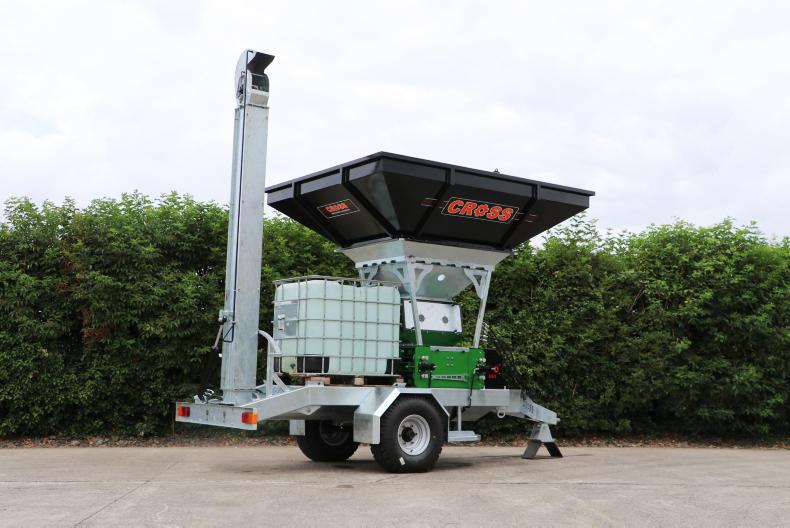
The Cross 350 is the entry level machine and is priced at €9,500 plus VAT.
Having been involved in the manufacture of grain mills for over 20 years, Cross now offers four different versions. Its model range includes the 350, 650, 950 and the larger 1250. The numbers of the models correspond to the roller length in milimeters. The machines have outputs from 3t/hr up to 60t/hr in dry rolling and up to 90t/hr while crimping.
In January, the firm released its new MK2 range of grain mills. The new range is equipped with solid rollers which are turned down as one piece of EN24T (hardest machinable material on market) shafting. With no welding in the shafts, they have the ability to re-grove the rollers many more times. The roller section is now part of a cassette system. This means the rollers and bearings can be lifted off in one unit for easy servicing or if being replaced.
From the beginning of this year, all mill models received a 25% increase in bearing size to accommodate the solid rollers. All bearings are now external for easy access.
The Cross 350 is the entry-level machine and is priced at €9,500 plus VAT. Meanwhile, the larger higher-spec 650 with solid hardened rollers and contractor chassis (IBC mixing station) is €26,000 plus VAT.
The contractor option
If not in the position to invest in your own machine or if your scale simply doesn’t justify, there are contractors with high-output machines who travel from farm to farm offering the service. Like any decision when it comes to mechanisation, the contractor is often the best option. We spoke to Stephen Kelly, a Carlow-based contractor with 25 years’ experience in the business.
Stephen runs two machines, a trailed PTO driven roller which is pulled by a tractor and a roller mounted on a truck which is driven by its own air-cooled engine. Both are fitted with a liquid applicator and a pellet/powder applicator. Each features a system that weighs the grain as it passes through the machine, offering a realtime readout and printer for each batch of grain crimped/rolled. Stephen noted that he rolls barley, wheat, oats, beans, peas, and combicrop.
The cost of rolling/crimping varies year to year. It depends on the product, the quantity, the amount of moisture and the location. However, Stephen said: “It typically ranges from €13/t to €15/t excluding VAT when the farmer loads the roller. To get a clearer picture of the true cost, the overall price for rolling with a urea based additive is around €40/t to €45/t. Meanwhile, rolling and Propcorn (propionic acid based), could cost €30/t to €35/t. If crimping, the full cost could be in around €25/t to €30/t, all depending on the protein additive used in the process.”
Those considering buying grain off the combine but worried about storage have another option – bag it. Stephen also offers a bagging service. “We bag both rolled and crimped grain, but it’s actually been more popular for storing maize for dairy farmers in recent times. It suits as the feed doesn’t have to be stored in a silo or on concrete, while all the effluent is gathered. Because there’s a narrow pit face, there is much less wastage. We use 1,000 gauge plastic which we supply. If the farmer loads the bagger, we charge €10/t including VAT,” explained Stephen.
For more on options for storing, rolling, crimping and the relative cost of these options see next week’s Irish Farmers Journal.
With tillage farmers gearing up for the harvest, now is the time for livestock farmers to consider buying grain off the combine to help reduce winter feed costs. Peter Thomas Keaveney reports
What is grain crimping?
The crimping of grain is a process which allows farmers to harvest, process, store, and preserve (ensiled) the full feed value of cereal and protein grains for use as animal feed. This process cuts out the need for drying and storage facilities.
For successful crimping, farmers will need a clean, airtight clamp/silo where the processed grain can be ensiled in a pit-like form. Processing freshly harvested grain through crimping exposes the carbohydrates and protein.
What is dry rolling?
Rolling is the cracking of the grain in several places, to enable the rumen to access all the starch and other nutrients without going as far as milling the grain. Dust should be minimised, as it can be lost and adds a risk during handling. The main difference between crimping and rolling is that rolling happens at 18-20% moisture, while crimping would ideally occur between 28-32% moisture.
Who manufacturers crimping/rolling machines?
A number of Irish manufacturers make crimping machines of varying capacity and sizes. Two of the best known firms include Kildare-based Cross Agricultural Engineering and Louth-based Wakely Engineering.

Wakely offer eight models which include static electric to mobile PTO and finally static PTO machines.
Both manufacturers offer machines which can be used for both crimping and for dry rolling. To switch from one process to the other, it’s just a case of adjusting the roller pressure. Depending on the specifications of the machine, this can be carried out either hydraulically or manually.
These machines are generally able to process any combinable crop.
Wakely Engineering
Based near Dundalk in Co Louth, Wakely offers a huge range of such machines. These vary from small electrical powered machines with outputs of 1.5t/hr up to high-volume 50t/hr machines.
The firm offers eight models which include static electric to mobile PTO and finally static PTO machines. According to Wakely, the electric machines would typically be used for dry rolling and flat rolling. They can crimp, but the mobile machine would be more suitable.
The smallest electric machine the firm makes is the 0130. With an output of 1t to 1.5t/hr, it would suit a small farmer with a single phase power supply. This machine would set you back €4,000 plus VAT.
The next step is the 0250, which has an output of 2.5t to 3t/hr. Suiting a bigger farmer with a three phase power supply, it’s priced at €7,000 plus VAT. Those after more output can avail of the 0510 mobile drier. With a 9t/hr rolling output capacity, it can be driven with a 65hp tractor. It’s priced at €18,600.
The Wakely machines are equipped with helical gears that drive both rolls. The firm says these eliminate slippage which can occur at high moisture levels, or when the machine is in full flow. The rolls are powered by belts or chains.
They also feature fluted solid chilled rolls which allow the operator to roll dry or wet grain. Liquid and granular applicators can be supplied with machines as optional extras. The rear platform can be used to store a 1,000l IBC tank for crimping.
Cross Engineering

The Cross 350 is the entry level machine and is priced at €9,500 plus VAT.
Having been involved in the manufacture of grain mills for over 20 years, Cross now offers four different versions. Its model range includes the 350, 650, 950 and the larger 1250. The numbers of the models correspond to the roller length in milimeters. The machines have outputs from 3t/hr up to 60t/hr in dry rolling and up to 90t/hr while crimping.
In January, the firm released its new MK2 range of grain mills. The new range is equipped with solid rollers which are turned down as one piece of EN24T (hardest machinable material on market) shafting. With no welding in the shafts, they have the ability to re-grove the rollers many more times. The roller section is now part of a cassette system. This means the rollers and bearings can be lifted off in one unit for easy servicing or if being replaced.
From the beginning of this year, all mill models received a 25% increase in bearing size to accommodate the solid rollers. All bearings are now external for easy access.
The Cross 350 is the entry-level machine and is priced at €9,500 plus VAT. Meanwhile, the larger higher-spec 650 with solid hardened rollers and contractor chassis (IBC mixing station) is €26,000 plus VAT.
The contractor option
If not in the position to invest in your own machine or if your scale simply doesn’t justify, there are contractors with high-output machines who travel from farm to farm offering the service. Like any decision when it comes to mechanisation, the contractor is often the best option. We spoke to Stephen Kelly, a Carlow-based contractor with 25 years’ experience in the business.
Stephen runs two machines, a trailed PTO driven roller which is pulled by a tractor and a roller mounted on a truck which is driven by its own air-cooled engine. Both are fitted with a liquid applicator and a pellet/powder applicator. Each features a system that weighs the grain as it passes through the machine, offering a realtime readout and printer for each batch of grain crimped/rolled. Stephen noted that he rolls barley, wheat, oats, beans, peas, and combicrop.
The cost of rolling/crimping varies year to year. It depends on the product, the quantity, the amount of moisture and the location. However, Stephen said: “It typically ranges from €13/t to €15/t excluding VAT when the farmer loads the roller. To get a clearer picture of the true cost, the overall price for rolling with a urea based additive is around €40/t to €45/t. Meanwhile, rolling and Propcorn (propionic acid based), could cost €30/t to €35/t. If crimping, the full cost could be in around €25/t to €30/t, all depending on the protein additive used in the process.”
Those considering buying grain off the combine but worried about storage have another option – bag it. Stephen also offers a bagging service. “We bag both rolled and crimped grain, but it’s actually been more popular for storing maize for dairy farmers in recent times. It suits as the feed doesn’t have to be stored in a silo or on concrete, while all the effluent is gathered. Because there’s a narrow pit face, there is much less wastage. We use 1,000 gauge plastic which we supply. If the farmer loads the bagger, we charge €10/t including VAT,” explained Stephen.
For more on options for storing, rolling, crimping and the relative cost of these options see next week’s Irish Farmers Journal.






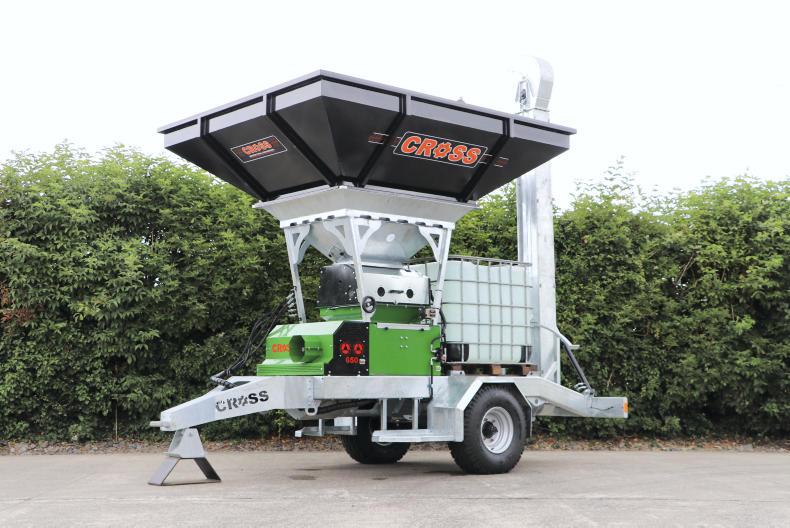
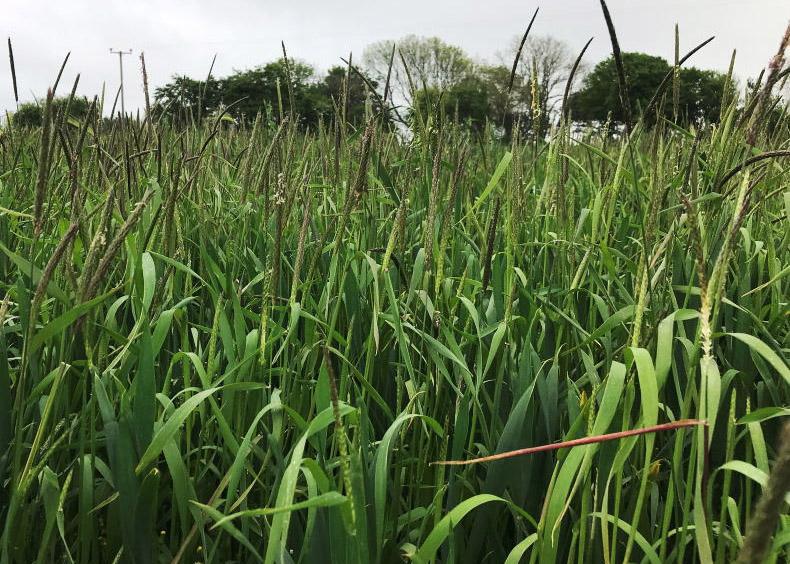

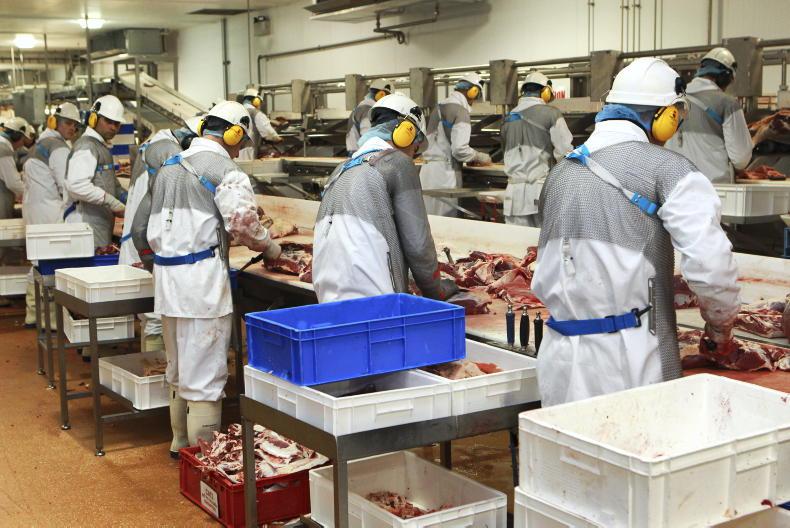
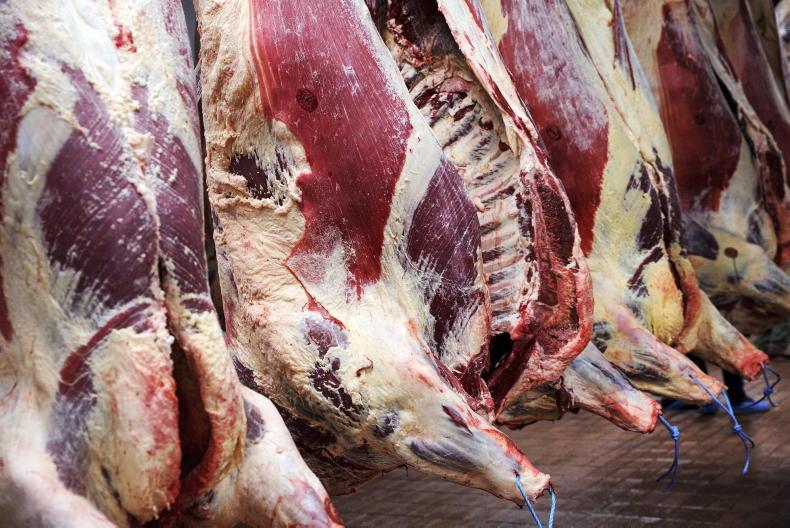
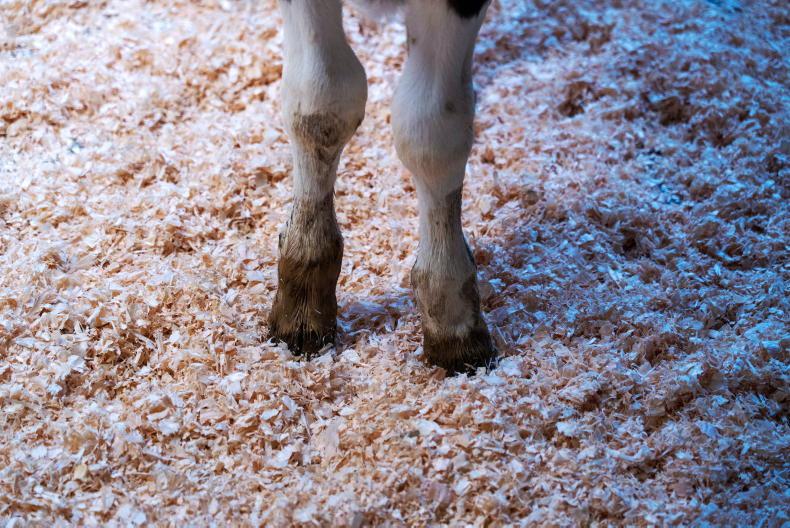
SHARING OPTIONS